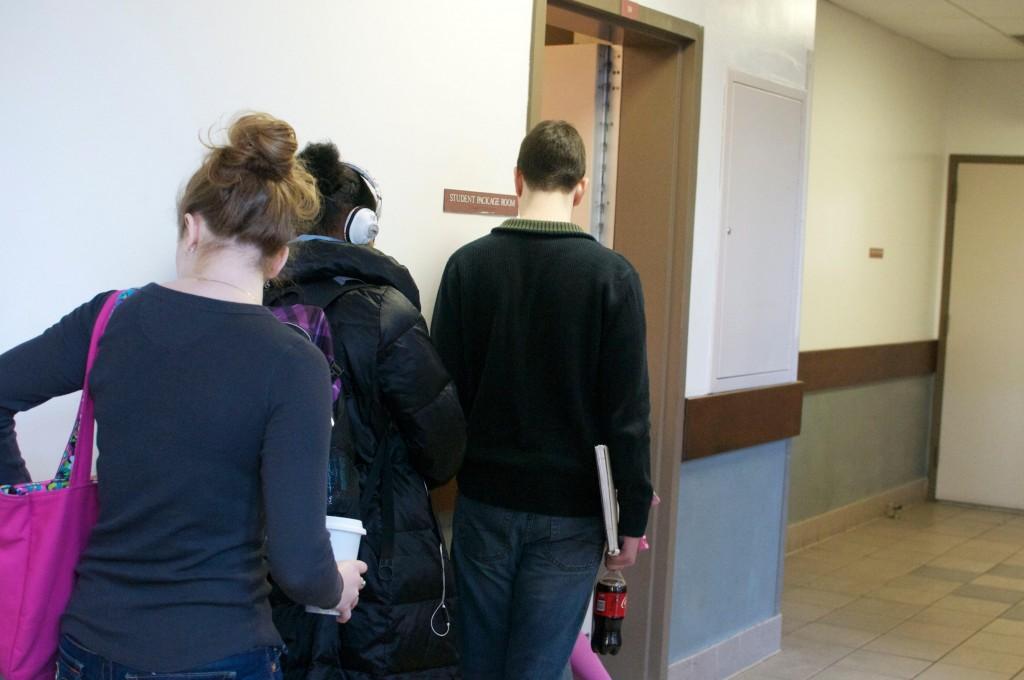With online shopping continuing to grow in popularity in the United States, students at FCLC are keeping pace with this growing digital trend and making shopping online for textbooks no exception.
Juliet Ben-Ami, FCLC ’11, is one of many students at FCLC who has been successful ordering books online. Her main reason for the digital switch can be attributed to the dollar signs, or lack thereof, that come from discounted textbook sites. “On average, shopping for textbooks online is so much cheaper,” Ben-Ami said.
Liz Reynolds, FCLC ’14, agrees. “I bought most of my books online because it’s much cheaper,” Reynolds said, “Why buy a paperback for $15 when you can buy it online for $3?”
Drastic price differences like this make online shopping worth the shipping cost and the weeklong wait for delivery. For shoppers like Ben-Ami, the price difference needs to be more than $10 for the online purchase to be worthwhile.
“My rule of thumb is that if the difference is less than $10, I won’t order the book online. If it’s more than $10, ordering online is worth the wait,” Ben-Ami said. Sticking to her self-imposed rule, she attests to ordering almost all her books online this year.
Among other courses, FCLC requires an intensive four semesters of a foreign language as part of the core curriculum. Spanish, the largest foreign language department at Fordham, is a prime example of the drastic difference in textbook prices.
For an intermediate Spanish class, the required text is Atando Cabos, which costs $178. The bookstore offered no used editions of this book, leaving students’ with only the option to buy the complete value package, equipped with the text, student manual, answer key and Oxford Spanish dictionary.
On Amazon.com, one of the most frequently used website for textbook buying, one can find all the components of the value package Fordham sold for a total of $56.59. This amounts to a savings of $121.41.
However, for some students like Rachel Monahan, FCLC ’11, the delivery rate is a deal breaker when shopping online. “Nothing beats the instant gratification of going into the bookstore and walking out with exactly what you need,” Monahan said. Monahanconfessesd that she usually is left shopping at the bookstore by default, a result of her start-of-the-semester procrastination.
“There is no doubt that shopping online is much cheaper, but if I don’t take action and order my books right away, I won’t get the books until midterms. I end up having to buy them at the bookstore and swallow the extra cost because I only have myself to blame,”Monahan said.
She is not the only one whose wallet has felt the effects of procrastination. Asa De Sal, FCLC ’14, said that this semester, he bought all of his books from the bookstore because he waited too long to order off line. In comparison to last semester when he purchased some books online he said, “they were definitely less expensive than what I spent buying them from Fordham.”
Monahan, like De Sal, is regretting her choices now because she said that spare cash would have come in handy. “College is expensive enough, not to mention we go to school in New York City. I definitely wish I did more online shopping for textbooks because that would have been a big help,” Monahan said.
In order to keep up with the growing digital trend, FCLC has had to update technology. As of this past September, Residential Life has implemented a new system in the mailroom that scans all packages into a computerized system, then notifies students immediately via e-mail or text message.
John Borelli, a Fordham mailroom employee, said he is extremely grateful for the new system given that the amount of textbooks the mailroom has received this semester has been the highest in FCLC history.
“Before this we used to have to hand-write slips to place in students’ mailboxes. Can you even imagine handwriting slips for 3,205 packages?” Borelli said.
Scanning packages and notifying students electronically has helped avoid any confusion and the ‘I never received a slip’ response. While Borelli attests that the books have been flowing in at an alarming rate, the digital system has allowed for them to flow out just as fast. Such digital conversions are reshaping conventional methods, for both students and employees alike, at Fordham.









